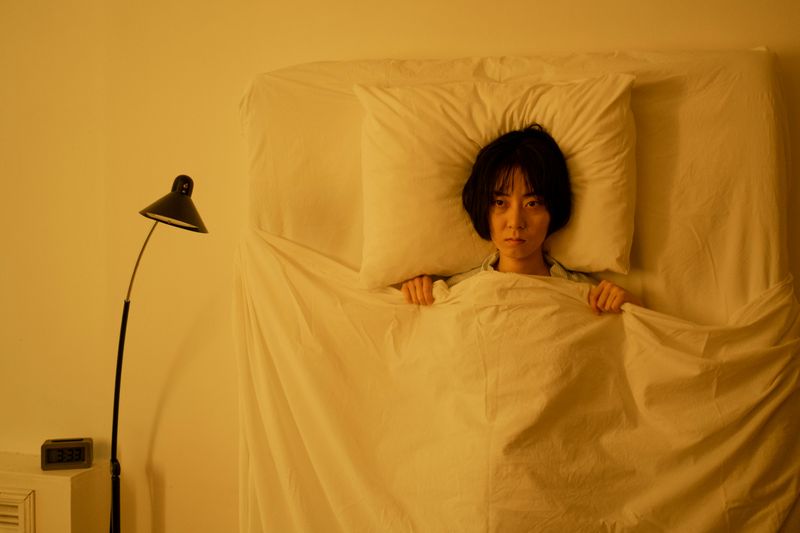Experts Say These 15 Evening Mistakes Might Be Why You’re Always Tired

Ever wonder why you feel exhausted even after a full night in bed? The problem might not be how long you sleep, but what you do in the hours leading up to it. Small evening habits can secretly sabotage your rest, leaving you groggy and drained every morning. Here are 15 common mistakes that could be stealing your energy and what you can do about them.
1. Looking at Screens Before Bed

Your phone might be your worst bedtime enemy. Blue light from screens tricks your brain into thinking it’s still daytime, which messes with melatonin, the hormone that tells your body when to sleep.
When melatonin levels drop, falling asleep becomes much harder. Even scrolling through social media for just 20 minutes can delay your sleep by an hour or more.
Try putting devices away at least an hour before bed. If you must use them, enable night mode or wear blue-light-blocking glasses to minimize the damage.
2. Having the TV on in Your Bedroom

Falling asleep to your favorite show sounds relaxing, but it actually works against you. The constant flickering light from the TV keeps your brain in a state of mild alertness, preventing you from reaching deep, restorative sleep stages.
Background noise and sudden volume changes can also jolt you awake throughout the night. Your mind stays partially tuned in, even when you think you’re asleep.
Consider removing the TV from your bedroom entirely. If that feels impossible, set a sleep timer so it shuts off within 30 minutes.
3. Engaging in Social Interaction

Late-night heart-to-hearts might feel necessary, but they can seriously mess with your sleep. Emotional or stimulating conversations activate your brain and raise stress hormones like cortisol, making it nearly impossible to relax afterward.
Whether it’s an argument, gossip session, or deep discussion, your mind stays wired long after the conversation ends. This delays the natural wind-down process your body needs.
Save important talks for earlier in the day. Keep evening interactions light and positive to help your mind settle peacefully before bed.
4. Working from Your Bed at Any Time of Day

Your bed should mean one thing: sleep. When you answer emails or finish assignments there, your brain starts associating that space with work and alertness instead of rest.
This mental confusion makes it harder to fall asleep when bedtime actually arrives. Your mind doesn’t know whether it’s time to be productive or time to shut down.
Create a clear boundary by keeping work in another room or at a desk. Train your brain to see your bed as a sleep-only zone, and you’ll notice the difference quickly.
5. Reading a Thriller

Page-turners are called that for a reason, but they’re terrible for sleep. Suspenseful stories spike your adrenaline and keep your heart racing, which is the exact opposite of what your body needs before bed.
Your mind stays engaged with plot twists and cliffhangers, making it hard to relax even after you close the book. That mental stimulation can keep you awake for hours.
Switch to calming reads like memoirs, poetry, or light fiction in the evening. Save the thrillers for weekend afternoons when staying alert isn’t a problem.
6. Eating Just Before Bed

A midnight snack might seem harmless, but your digestive system has other plans. Eating right before lying down forces your stomach to work overtime, which can lead to bloating, discomfort, or heartburn.
Heavy or spicy meals make these effects even worse. All that internal activity prevents your body from easing into true rest. You might fall asleep, but the quality will be light and easily disturbed.
Over time, this habit can throw off your natural sleep rhythm and leave you feeling sluggish. Finish eating two to three hours before bed. If you’re hungry, try something light like a banana or nuts.
7. Exercising Too Close to Bedtime

Exercise is great for your health, but timing makes a big difference. Working out raises your heart rate, pumps adrenaline, and increases your core temperature—all signals that tell your body it’s time to stay alert.
Even if you feel tired, your body may not be ready to rest. Your system needs time to cool down and shift back into a relaxed state. Jumping into bed right after an intense workout can leave you restless, sweaty, and wide awake.
That lingering energy surge can easily delay deep sleep. Try to finish vigorous exercise at least three hours before bedtime. If you want movement later, gentle yoga or stretching can calm your muscles and ease your mind.
8. Drinking Alcohol Before Bed

That nightcap might make you feel sleepy at first, but it’s secretly sabotaging your rest. Alcohol disrupts REM sleep—the stage where your brain processes emotions and memories—leaving you tired even after a full night’s sleep.
Its sedative effects wear off quickly, causing your body to rebound into lighter sleep. As your system metabolizes the alcohol, you may wake several times without realizing it. Those interruptions prevent your body from reaching deep, restorative stages of rest.
The result is grogginess and reduced alertness the next day. To sleep better, stop drinking at least three hours before bed. This gives your body time to process alcohol and fully unwind.
9. Drinking Coffee Too Late in the Day

Caffeine has a much longer life in your body than most people realize. It blocks adenosine, a natural brain chemical that signals tiredness, and can linger in your system for six hours or more.
Even a small amount late in the day can keep your mind alert long past bedtime. That late-afternoon coffee may seem harmless, but it’s often the reason you’re staring at the ceiling at midnight. When caffeine is still active, your brain can’t fully relax or enter deep sleep.
Restlessness and lighter sleep cycles usually follow. To sleep soundly, cut off caffeine by early afternoon. For an energy lift later, try herbal tea, water, or a brisk walk instead.
10. Not Getting Enough Sunlight

Sunlight does far more than lift your mood—it keeps your body’s internal clock running on time. When you don’t get enough natural light, your circadian rhythm drifts out of sync, leaving you unsure when to feel alert or drowsy.
This confusion can make it difficult to fall asleep at night and wake refreshed in the morning. Spending all day indoors under artificial lighting only worsens the problem. Without sunlight cues, your brain struggles to regulate melatonin, the hormone that governs sleep.
As a result, you may feel sluggish and unfocused. Aim for at least 15 to 30 minutes of sunlight each morning. Open curtains, step outside, or enjoy breakfast near a bright window to help reset your body’s rhythm naturally.
11. Having Inconsistent Sleep and Wake Times

Your body thrives on rhythm and predictability. When your bedtime and wake-up times constantly shift, your internal clock loses its bearings, making it harder to feel refreshed. This inconsistency throws off the natural cues that tell your body when to sleep and wake.
Irregular sleep schedules can lead to “social jet lag,” where your body feels perpetually out of sync. Even if you log enough hours in bed, you still wake up groggy and unmotivated. Over time, this pattern can also affect mood and focus.
Aim to keep your sleep and wake times consistent, even on weekends. Regularity strengthens your circadian rhythm, helping you fall asleep faster and wake up more energized.
12. Not Giving Yourself Enough Wind-Down Time or Setting a Bedtime Routine

Your body can’t instantly shift from high energy to deep rest. Without a calming pre-sleep routine, your brain stays active, processing the day’s events and resisting the signal to unwind. That mental momentum makes it difficult to fall asleep, even when you’re exhausted.
A consistent bedtime ritual tells your body it’s time to slow down. Whether it’s reading, a warm bath, or gentle stretches, repetition helps reinforce the transition from alertness to relaxation.
Soon, your body will start recognizing these cues automatically. Begin winding down at least 30 to 60 minutes before bed. Choose relaxing activities you enjoy and stick with them nightly to build healthier sleep habits.
13. Not Having a Calming Sleep Environment

Your bedroom environment has a powerful impact on how well you sleep. Clutter, harsh lighting, and background noise trigger subtle stress signals in your brain, keeping your body slightly on edge.
Even if you think you’re relaxed, your nervous system senses the disruption. A messy or overstimulating space can make your mind feel scattered and uneasy. Your body picks up on the visual chaos and stays alert, making it difficult to drift off.
Over time, this leads to restless nights and poor-quality sleep. Turn your bedroom into a sleep sanctuary. Keep it cool, dark, and quiet, and clear away distractions like laundry or electronics. A peaceful space invites peaceful rest.
14. Ruminating Over Your Thoughts

Mental replay can be surprisingly draining. When you lie in bed rehashing conversations or worrying about tomorrow, your brain releases cortisol—the stress hormone that keeps you alert and tense.
This internal chatter tricks your body into thinking it still needs to solve problems instead of rest. That nonstop loop blocks your mind from slipping into the calm, restorative state needed for sleep. The more you think, the more alert you feel, creating a frustrating cycle of wakefulness.
Even small worries can spiral into sleeplessness. To break the habit, jot your thoughts down before bed. Pair this with deep breathing or gentle meditation to help your body unwind and feel safe to rest.
15. Taking a Long Nap Late in the Day

Naps can be refreshing, but timing and length matter. A long nap late in the day reduces your sleep drive, the natural pressure that builds up to help you fall asleep at night.
When you nap too close to bedtime, your body’s rhythm shifts, leaving you wide awake when you should be winding down. You’ve essentially borrowed sleep from the night.
Limit naps to 20 to 30 minutes and finish them before mid-afternoon. This keeps your nighttime sleep schedule intact while still giving you a quick energy boost.

Comments
Loading…